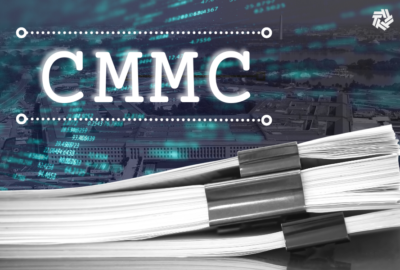What is the Trajectory of the ASCEND BPA?
The highly commercial nature of cloud services is pushing up against government-unique requirements, bringing the ASCEND BPA to a “fork in the road.”
Last month, the Federal Acquisition Service (FAS) issued a draft Request for Quotes (RFQ) for the proposed governmentwide ASCEND Blanket Purchase Agreement (BPA) for cloud services. The RFQ included a statement of work (SOW) outlining the requirements for Pool 1 – Infrastructure as a Service (IaaS) and Platform as a Service (PaaS), and it invited MAS contractors to submit comments and questions on the draft SOW for FAS’s consideration in the development of final requirements for the formal, competitive phase of Pool 1 of the BPA.
Significantly, the ASCEND BPA acquisition strategy includes two other related pools: Pool 2 – Software as a Service (SaaS) and Pool 3 – Cloud Related IT Professional Services. At the ASCEND BPA industry day held on February 8th this year, FAS indicated that it was starting market research on Pools 2 and 3 and that industry partners should look for a Request for Information (RFI) for those pools this summer. Consistent with this schedule, FAS plans on first issuing a separate RFQ for Pool 1, followed by a separate RFI and RFQ for Pools 2 and 3.
The draft RFQ for Pool 1 marks the latest step in a multi-year journey towards FAS’s goal of establishing a governmentwide BPA for cloud services. In 2021, FAS issued an RFI to MAS contractors for a governmentwide, Multiple Award Cloud BPA. The following year, FAS introduced the ASCEND BPA acquisition strategy while continuing the dialogue around the structure and requirements. The RFIs, industry day, and draft RFQ together raise questions/uncertainties for FAS, customer agencies, and industry regarding the appropriate acquisition strategy. In particular, the highly commercial nature of cloud services is pushing up against government-unique requirements, bringing the ASCEND BPA to a “fork in the road.” Will the BPA “ascend” towards a streamlined acquisition strategy with corresponding requirements that embrace commercial terms and practices? Or will the BPA continue to “descend” into an overly complex acquisition strategy that incorporates layers of government-unique requirements?
Here are some of the key aspects of the current strategy that have raised uncertainty among FAS’s industry partners:
- The current pool structure is inconsistent with commercial practice and delivering an integrated, holistic cloud solution, as it will increase complexity, risk, and costs for customer agencies and MAS contractors. Its separate pool approach is compounded further by the separate procurements for each of the pools. FAS should engage with industry on the optimum approach to structuring the functions consistent with commercial practice and the underlying schedule.
- The current draft RFQ/SOW incorporates requirements that are inconsistent with commercial practice. The divergence from commercial practice will limit competition, innovation and, ultimately, value to the customer. In this regard, see generally the individual industry feedback the Coalition submitted in response to the RFQ. FAS should focus on limiting non-commercial terms to the maximum extent practicable.
- Relatedly, the layering on of additional agency-specific cloud requirements at the BPA level will increase complexity and costs for MAS contractors, which, in turn, likely will impact competition and value for customer agencies. FAS should identify a simplified, core set of requirements that generally apply governmentwide, while allowing customer agencies to tailor requirements at the task order level, thereby streamlining the process and enhancing competition. This approach also is consistent with the highly customizable nature of cloud requirements.
- The absence of agency commitments to use the ASCEND BPA continue to create risk for MAS contractors. Identifying agency commitments will incentivize industry to compete for the BPA and improve the quality of any responses submitted. In addition, this increased competition will enhance value, savings, and innovation over the long term. It is central to ensuring robust mission support through the BPA.
- As part of the overall acquisition strategy for the ASCEND BPA, FAS’ industry partners also are keen to understand how the BPA strategy fits within its overall IT portfolio currently meeting customer agencies mission support requirements. Questions remain about vertical and horizontal contract duplication arising from the ASCEND BPA acquisition strategy.
Over the course of the development of the ASCEND BPA, FAS’ industry partners have appreciated the opportunity to engage and share feedback on the acquisition strategy and requirements. Given the approaching fork in the road, perhaps it is time for a “cloud roundtable” to discuss the way forward for ASCEND in delivering best value mission support for customer agencies. Coalition members stand ready to facilitate and contribute to such a roundtable discussion to improve the program.
Copyright © 2025 Federal News Network. All rights reserved. This website is not intended for users located within the European Economic Area.






